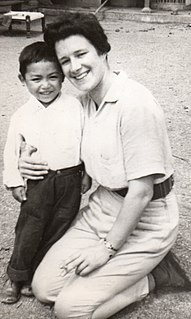A Quote by Bret Stephens
The hater always suffers more than the object of his hatred.
Related Quotes
Anger is always concerned with individuals, ... whereas hatred is directed also against classes: we all hate any thief and any informer. Moreover, anger can be cured by time; but hatred cannot. The one aims at giving pain to its object, the other at doing him harm; the angry man wants his victim to feel; the hater does not mind whether they feel or not.
It is a curious subject of observation and inquiry, whether hatred and love be not the same thing at bottom. Each, in its utmost development, supposes a high degree of intimacy and heart-knowledge; each renders one individual dependent for the food of his affections and spiritual life upon another; each leaves the passionate lover, or the no less passionate hater, forlorn and desolate by the withdrawal of his object.
To be an object of hatred and aversion to their contemporaries has been the usual fate of all those whose merit has raised them above the common level. The man who submits to the shafts of envy for the sake of noble objects pursues a judicious course for his own lasting fame. Hatred dies with its object, while merit soon breaks forth in full splendor, and his glory is handed down to posterity in never-dying strains.
All that is limited by form, semblance, sound, color is called object. Among them all, man alone is more than an object. Though, like objects, he has form and semblance, He is not limited to form. He is more. He can attain to formlessness. When he is beyond form and semblance, beyond "this" and "that," where is the comparison with another object? Where is the conflict? What can stand in his way? He will rest in his eternal place which is no-place. He will be hidden in his own unfathomable secret. His nature sinks to its root in the One. His vitality, his power hide in secret Tao.
The question so often asked of modern painting, "What is it?", contains more than the dull skepticism of the man who is not going to have the wool pulled over his eyes. It speaks of a fundamental placement in relation to the work, that of a voyager in the world coming upon a strange object. The reader reconstitutes the work by his active participation, by approaching the object, tapping it, shaking it, holding it to his ear to hear the roaring within. It is characteristic of the object that it does not declare itself all at once, in a rush of pleasant naïveté.































